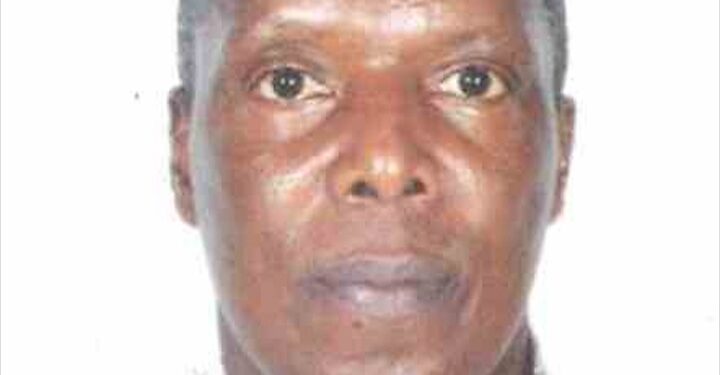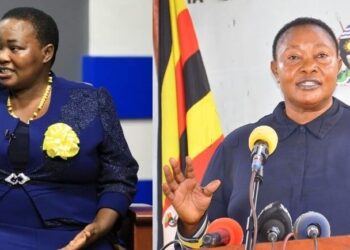In the past two weeks, Ugandans have witnessed an intense debate on the relations between Uganda and the European Union (EU). While responding to the EU Parliament Joint Motion for a Resolution on violations of human rights in Uganda and Tanzania, RC-B9-0409/2022 the Deputy Speaker of Parliament Mr. Thomas Tayebwa and Minister for International Relations Mr.
Henry Okello Oryem warned the EU parliamentarians and ambassadors to stop interfering in the country’s internal affairs. Despite being joined by many Ugandans; this debate has been one sided to the extent that some were misled to demonstrate against the EU without a substantial cause.
While their approach to the EU advisory motion was very emotional, it seemed to be precluding Uganda from fulfilling its mutual obligations as agreed in multiple agreements with the EU. Their response seemed to have been generated by the usual recurring syndrome embedded in the experiences of colonialism. Similarly, it was not surprising because their conduct of international relations and diplomacy with European states has been that of discord and confrontation.
Even after six decades of independence, our conduct continues to be dovetailed with colonialism. This is perhaps an indication that we are still immature or we do not understand the complexities of the global system. I presume that a sixty-year old adult who still blames his misfortunes on his parents is just unreasonable or a failure. Their responses were emotional and seemed founded on motivational errors ensuing from misperceptions and delusions. The responses lacked knowledge of the contents in frameworks governing EU-Uganda relations.
The EU was reminded that Uganda has a right to self-determination and is a sovereign state. Although Uganda as a sovereign state has freedom to decide the nature of international relations, it is still expected to converge on the international regime (laws, norms, values) for its conduct among the international society. While sovereignty offers a predictable foundation for existence of states, its characteristics have never been absolute. It comes with obligations by states to protect their own societies and intervene in other states in extreme humanitarian issues as stipulated by international humanitarian law. If neighbors looked on when a parent is harming or starving his own children because he is doing it in his own home, then the normative (moral) appropriateness of these neighbors would be brought into disrepute.
Hence, the EU has both moral and legal obligations to get involved in the internal affairs of Uganda when there are extreme abuses of human rights and environmental issues as stated in RC-B9-0409/2022. These issues are transnational in nature and because of their escalating impacts beyond national and regional boundaries, they create costs to neighbors even when domestically generated in Uganda.
Whereas our Deputy Speaker and the Honorable Minister made what I may construe as noise, they forgot that Uganda, to a certain extent, traded its sovereignty through agreements it signed with the EU that justify its actions.
The Lome IV Agreement (1990-2000) between the then European Economic Community (EEC) and the African, Caribbean, Pacific States (ACP) introduced clauses on human rights, democratic principles and rule of law in the relations between the two parties. This agreement introduced decentralized cooperation, a practice that legally enabled EEC to bypass the central state systems and consult local communities.
Furthermore, Uganda explicitly traded its sovereign rights through what has been the most elaborate contractual legal framework of EU-Uganda relations, the Cotonou Partnership Agreement (CPA)(2000-Nov. 2021) between EU and ACP States and what will be its subsequent successor between EU and Organization of African, Caribbean and Pacific states (OACPs), It is also the basis of Regional Economic Communities (RECs) and the continental Joint Africa-EU Strategy (JAES).
It is not surprising that CPA uses the word partnership. Partnership is implicitly applied here to allow the EU as unrestricted companion bypass central government authorities and consult at grassroots levels as used in its domestic cohesion policies. The CPA introduced dialogue and mutual obligations, promotion of human rights and their monitoring through dialogue and evaluation in the relationship. It also, makes good governance an essential element that triggers consultation and may lead to suspension of aid. In fulfilling these mutual obligations, the EU is legally supported by these instruments, which are legally binding to states parties.
Astonishingly, setting its own snare, Uganda ratified the COP21 Paris Agreement on climate change in 2016 despite having had oil production plans for the last twenty years. My question is, they knew the demands of this multilateral agreement, which focused on reduction of greenhouse gas emissions by curtailing the development of fossil fuels. Why would they ratify the agreement yet, they are aware that international relations and diplomacy is about engaging and manipulatively using the existing institutions for our country’s benefit?
My advice to the Deputy Speaker and Minister is that they should not have ratified the Paris Agreement. Borrowing a leaf from US on the Kyoto Protocol, they should have opted for bilateral agreements with a number of countries as US did with many including Uganda.
The other easy but costly option, is to withdraw from all agreements with the EU. They can also, choose to renegotiate multilaterally with the EU-27 through their Common Foreign and Security Policy (CFSP) or pursue a bilateral option with individual EU Member states that differ on common positions of the block. While this helps to manipulate EU common positions on Uganda, it will also prove the validity of the thesis by Uganda’s Ambassador to Brussels that opposition to the oil pipeline was by individual opportunistic EU parliamentarians despite having voted in favor of the motion overwhelmingly. Lastly, since the frameworks governing EU-Uganda relations emphasize dialogue, Uganda should discuss the issues that were raised in the motion instead of complaining through irrelevant settings.
I wish to conclude by asserting that the EU is legally bound by international law contained in these agreements to intervene in Uganda’s internal affairs especially in a more elaborate advisory role. Thus, intransigence and discord by those supposed to be speaking on our behalf undermines the international regime (laws, norms, values) on which countries meet to solve common issues and may lead us to incur unnecessary costs and loss of rights in other multilateral organizations.
Joachim Mugyenzi PhD
Joachimmugyenzi@gmail.com
Executive Director
Great Lakes Centre for Strategic and Global Policy (GLCSGP).
Do you have a story in your community or an opinion to share with us: Email us at editorial@watchdoguganda.com













